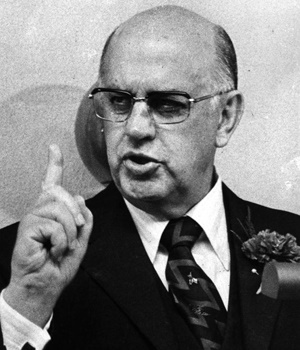This Day in History: November 22, 1979
Additional Date: November 22, 1979
On 22 November 1979 South African prime minister P. W. Botha gathered business leaders together in a conference at the Carlton Hotel in Johannesburg. Here he announced his plan to launch the Constellation of Southern African States (CONSAS) as a programme to re-establish the regional dominance of the apartheid state and its partners in big business.
Botha saw the need to wipe out what he termed a growing “Marxist threat” to the region (which he understood to be under the influence of the Soviet Union) in order to ensure that the region remained open to capitalist investment and growth. This move from Botha also came at the time that international anti-apartheid movement was growing and resulting in sanctions. It would have further established South Africa as a cold war ally of the US in their fight against communism.
The Carlton Conference and the launch of CONSAS was a clear indication that the apartheid state was beginning to adopt elements of the West’s new neoliberal project. This is because it sought to establish two major pillars of neoliberalism: 1) the crushing of working class (and nationalist) resistance, and 2) the establishment of free trade and the opening of markets.
Botha envisioned CONSAS as a regional alliance of states consisting of South Africa, Rhodesia (which was to become Zimbabwe in 1980), South West Africa (Namibia by 1990), Botswana, Lesotho, Swaziland, Transkei, Bophuthatswana and other homelands which became independent. At around the same time, however, a number of states that had already reached independence joined forces to establish the Southern African Development Coordination Council (SADCC).
